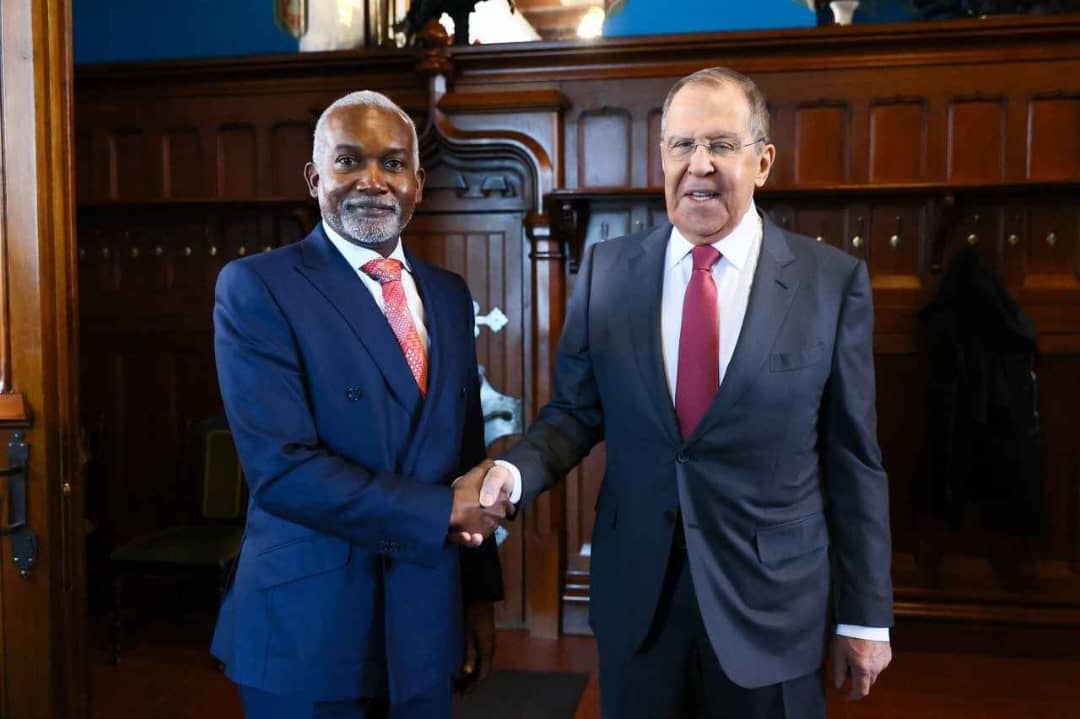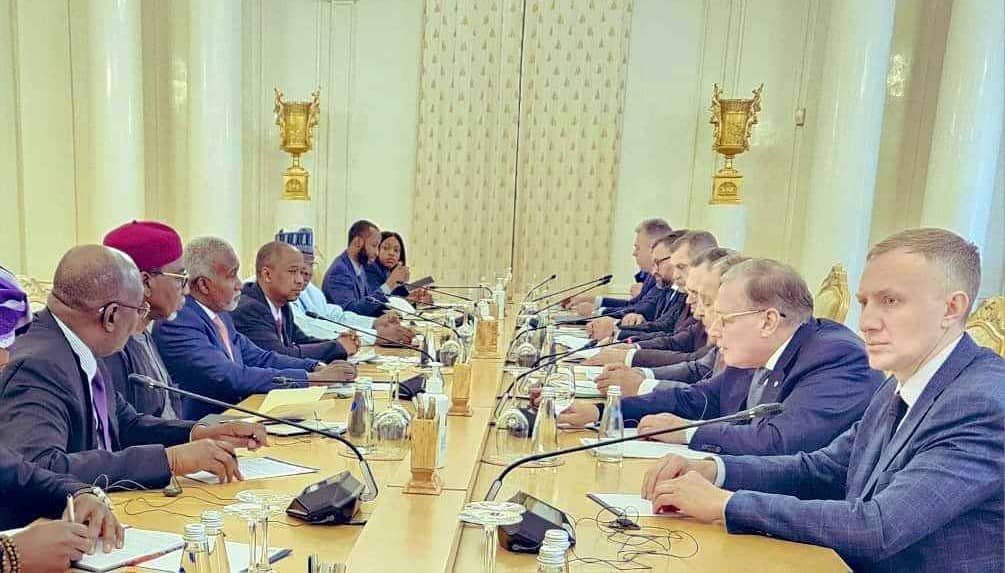In a significant diplomatic move, Nigeria and Russia have reaffirmed their commitment to bolstering bilateral ties through the signing of security and trade agreements during high-level meetings held in Moscow. The agreements were formalized during talks between Nigerian Foreign Minister Yusuf Tuggar and his Russian counterpart, Sergey Lavrov.

Foreign Minister Tuggar expressed the historical significance of Nigeria-Russia relations, highlighting the long-standing cooperation between the two nations across various domains, including diplomacy, trade, and security. Emphasizing the importance of strengthening these ties, both ministers discussed avenues for enhancing economic growth and regional stability.
Key points of discussion revolved around fostering economic development in Nigeria and ensuring stability in the West African and Sahel regions. Russia’s decision to lift sanctions on Burkina Faso, Mali, and Niger underscores its commitment to supporting regional security efforts, particularly those led by the Economic Community of West African States (ECOWAS).
Acknowledging Nigeria’s pivotal role in maintaining stability in the sub-region, there were calls for increased support from Russia to address security challenges effectively. These discussions align with the broader goals of Nigeria-Russia bilateral ties, emphasizing collaboration to address shared challenges and promote mutual development.
The meetings also laid the groundwork for future engagements and potential visits, including one by Nigerian President Bola Ahmed Tinubu to Moscow, underscoring the commitment of both countries to deepening their relationship.
Furthermore, Foreign Minister Tuggar engaged with key Russian companies to explore investment opportunities and deepen cooperation in strategic sectors. Discussions with the management of Russian Public International Aluminum Company, UC RUSAL, centered on potential investments to bolster Nigeria’s aluminum industry.
Additionally, talks with the management of the Russian State Atomic Energy Corporation focused on exploring deeper cooperation on peaceful nuclear energy use, including power supply, medicine, and research. The discussions involved stakeholders such as Ambassador Ahmed Rufai and Professor Ahmed Yusuf, Chairman of the Nigeria Atomic Energy Commission.
The signing of these agreements and the productive discussions mark a significant milestone in Nigeria-Russia relations, paving the way for enhanced cooperation in economic, security, and strategic spheres. As both nations reaffirm their commitment to mutual development, the agreements signal a new era of collaboration and partnership between Nigeria and Russia.
